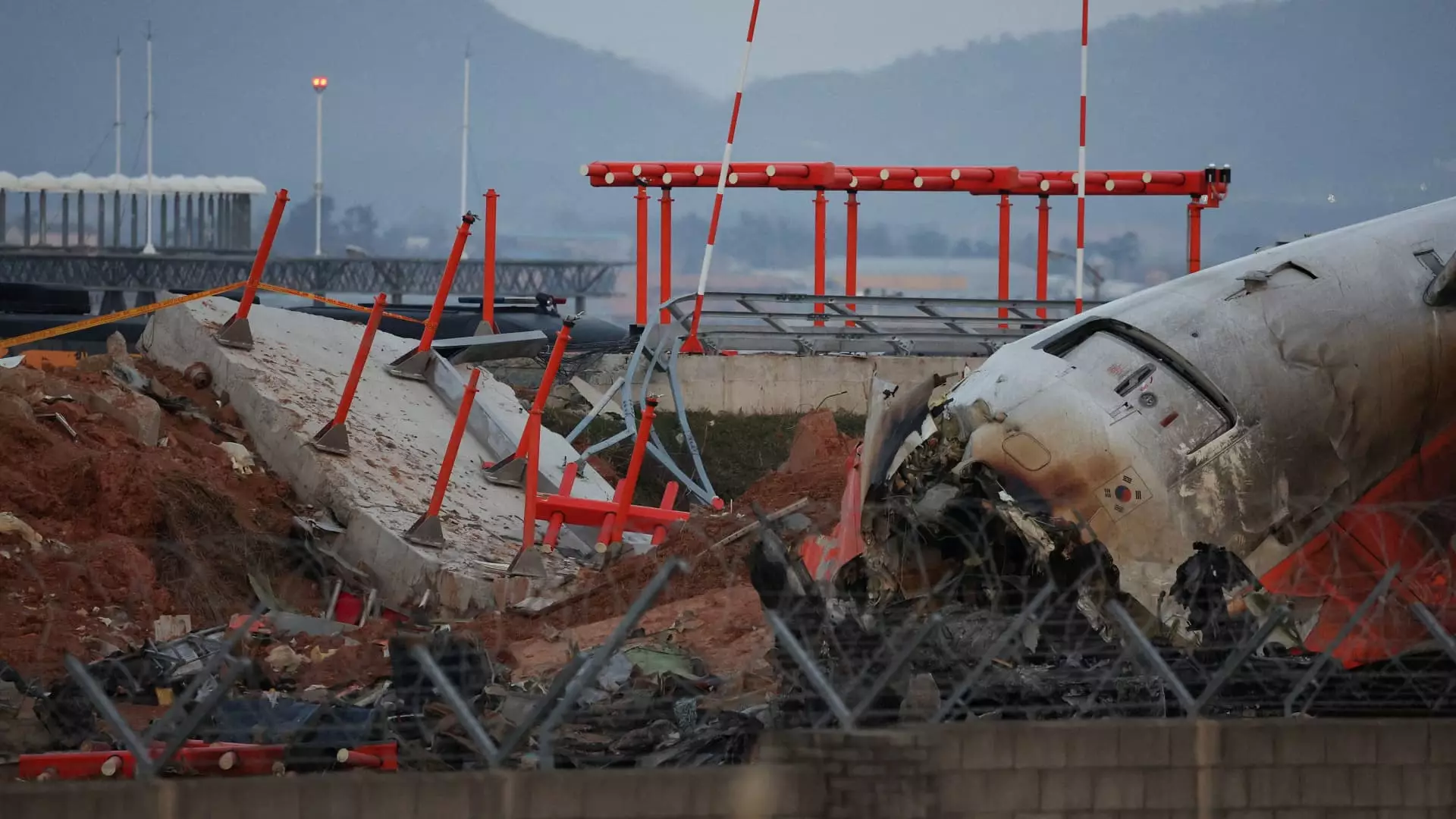The catastrophic Jeju Air Flight 7C2216 incident, which took place on December 29, 2022, marks a dark chapter in South Korean aviation history. The crash involved a Boeing 737-800 that tragically claimed the lives of 179 individuals, prompting an in-depth investigation into its causes. In particular, investigators are scrutinizing the premature cessation of recording data by both flight data and cockpit voice recorders, which stopped just four minutes before the aircraft’s fiery descent upon landing at Muan Regional Airport. This gap in data retrieval raises significant questions about the reliability of black box technology in aviation safety.
Authorities have emphasized the importance of analyzing the gaps in the recordings from the black boxes. Their abrupt termination raises alarms about potential mechanical failures or systemic issues, including the possibility that all power, including backup systems, was unexpectedly lost. Such an occurrence is rare and suggests a profound failure within the aircraft’s systems. The South Korean transport ministry, tasked with overseeing investigations, initially attempted to analyze the voice recorder within the country before recognizing the need for expertise from the United States National Transportation Safety Board. This swift move indicates the urgency to understand what transpired during the aircraft’s final moments.
Eyewitness accounts reveal that just before declaring a Mayday emergency, two minutes prior, air traffic control had warned of bird activity in the vicinity. This communication, coupled with the crew’s reporting of a bird strike, calls into question how external environmental factors might have influenced the aircraft’s structural integrity and safety protocols. Furthermore, discussions surrounding the embankment that the aircraft struck upon landing bring to light concerns regarding airport design and safety measures. Investigators are questioning the rationale behind the construction of a rigid embankment so close to the runway, potentially contributing to the crash’s severity.
In light of the tragedy, there have been calls for transparency regarding the investigation’s findings. Family members of victims have expressed skepticism towards the transport ministry leading the probe, advocating for the inclusion of independent experts who can provide objective insights. This highlights an urgent need for a balanced approach to the investigation, ensuring that victims’ families are adequately informed and engaged throughout the process. Such transparency not only fosters public trust in aviation regulatory bodies but also addresses the uncertainties faced by those mourning their loved ones.
The Jeju Air Flight 7C2216 disaster is not merely a statistic in airline tragedies; it serves as a poignant reminder of the ever-present risks associated with air travel. As investigators probe deeper into the complexities surrounding the crash, lessons must be learned to enhance safety protocols and prevent similar occurrences in the future. The challenges exposed by this incident underscore the necessity for continuous advancements in technology and design, alongside a collaborative and transparent investigative approach. Only through these avenues can we hope to safeguard lives and maintain public confidence in air travel.


Leave a Reply